 News headlines from Europe about skeptical activism, mythbusting, science related policy decisions, consumer protection, frauds, health scams, alternative medicine, bad scientific practices, pseudoscience. and more!
News headlines from Europe about skeptical activism, mythbusting, science related policy decisions, consumer protection, frauds, health scams, alternative medicine, bad scientific practices, pseudoscience. and more!
Skepticism, evidence, science, mythbusting, consumer protection
 News headlines from Europe about skeptical activism, mythbusting, science related policy decisions, consumer protection, frauds, health scams, alternative medicine, bad scientific practices, pseudoscience. and more!
News headlines from Europe about skeptical activism, mythbusting, science related policy decisions, consumer protection, frauds, health scams, alternative medicine, bad scientific practices, pseudoscience. and more!
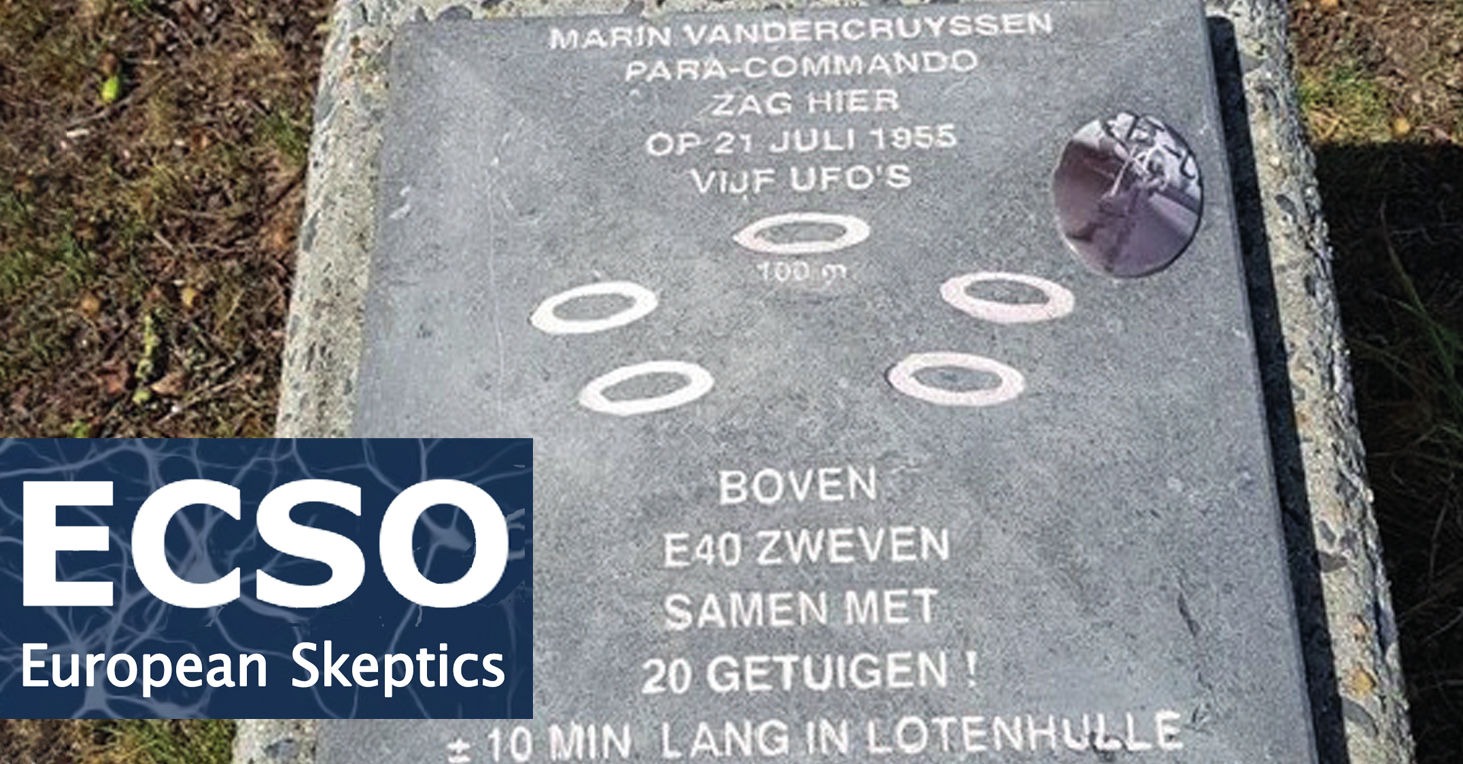 Near the small Flemish village of Lotenhulle, Belgium, a quite unique monument has been removed. It commemorated the sighting of five UFOs on July 21, 1955.
Near the small Flemish village of Lotenhulle, Belgium, a quite unique monument has been removed. It commemorated the sighting of five UFOs on July 21, 1955.
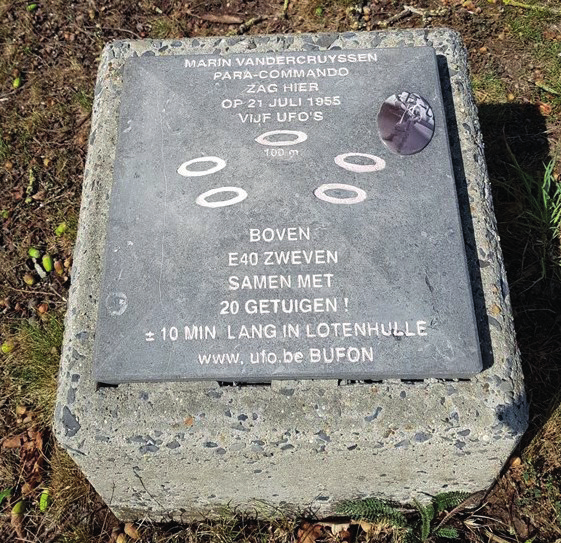
Former paratrooper Marin Vandercruyssen said he saw there five “silver discs” floating silently above the nearby highway. About twenty other witnesses were reportedly present.
It is curious that Vandercruyssen didn’t come forward with his story until 2004. After a second witness was found, the local municipality gave permission to place a memorial stone on the edge of the road where he made his observation. The stone was initially installed on July 5th (World UFO Day) in 2005.
The small monument, a square pyramid with sides of about half a meter, was reportedly paid for by Vandercruyssen, who was a staunch UFO believer. He chaired the East Flanders branch of the Belgian UFO Network (Bufon).
Vandercruyssen died in 2020. The monument has now been removed at the request of the family, who no longer wishes to be associated with the event.
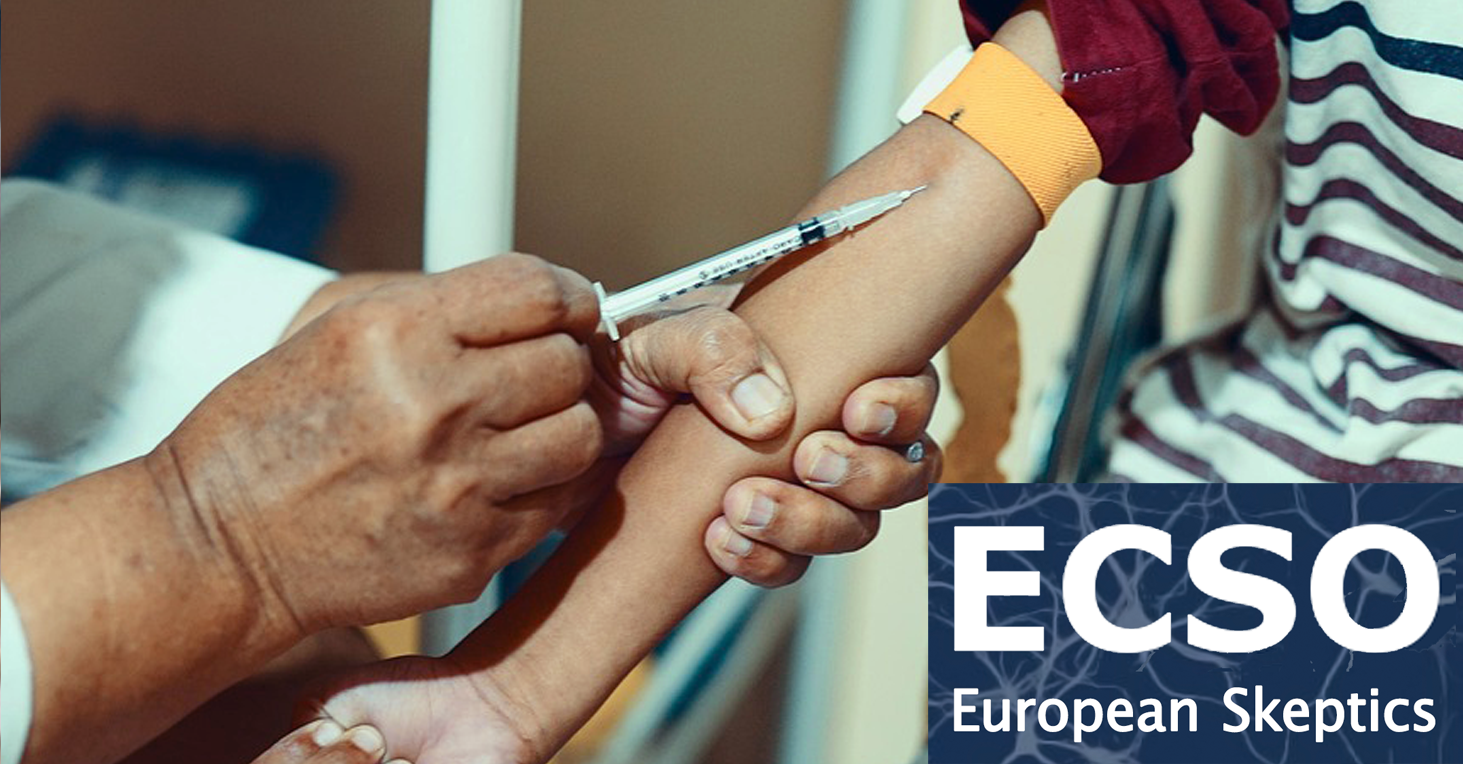 Many vaccines contain aluminium compounds, such as aluminium sulphate or aluminium hydroxide. These ensure that our immune system responds better to the vaccine, increasing its effectiveness. The presence of aluminium is sometimes criticized, especially in childhood vaccines. It is claimed that it causes developmental disorders, allergies, and autoimmune diseases.
Many vaccines contain aluminium compounds, such as aluminium sulphate or aluminium hydroxide. These ensure that our immune system responds better to the vaccine, increasing its effectiveness. The presence of aluminium is sometimes criticized, especially in childhood vaccines. It is claimed that it causes developmental disorders, allergies, and autoimmune diseases.
A recent study by Danish researchers shows this to be false. The researchers analysed data from more than 1.2 million children, of whom only about 15,000 were unvaccinated. The vast majority of children received vaccines containing aluminium. The conclusions are clear: the vaccinated group exhibits no more health problems than the unvaccinated.
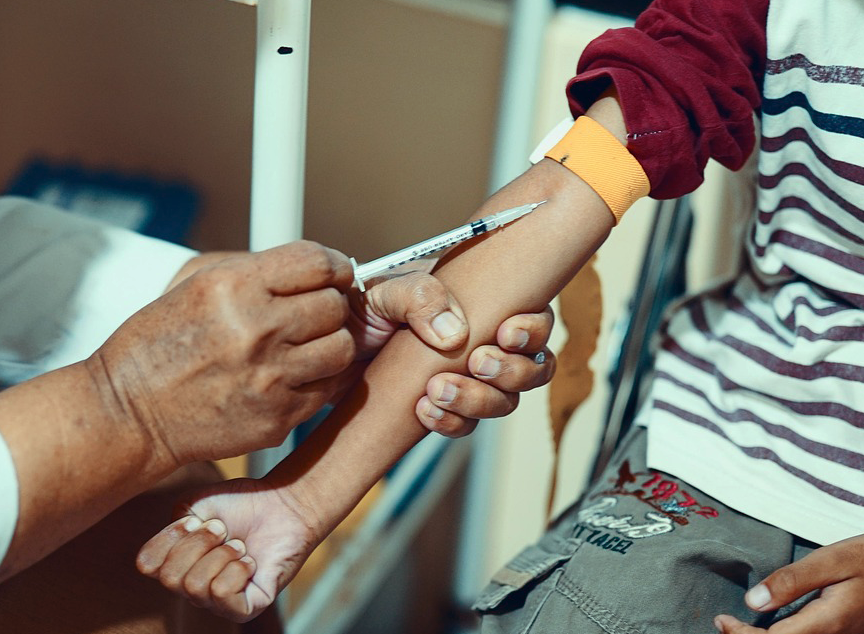
US Secretary of Health and Human Services Robert Kennedy Jr., a notorious opponent of vaccination, attempted to prevent the publication of this study from the journal Annals of Internal Medicine—a highly unusual step. But publication took place anyway.
The results of this study confirm what has long been known. Aluminium is a metal found everywhere in nature. We ingest an average of 5 milligrams of aluminium per day through food, drinks, breathing, as well as through food packaging, pots, and pans. This amount is completely harmless. A single vaccine dose contains even less aluminium, 0.1 to 0.5 milligrams.
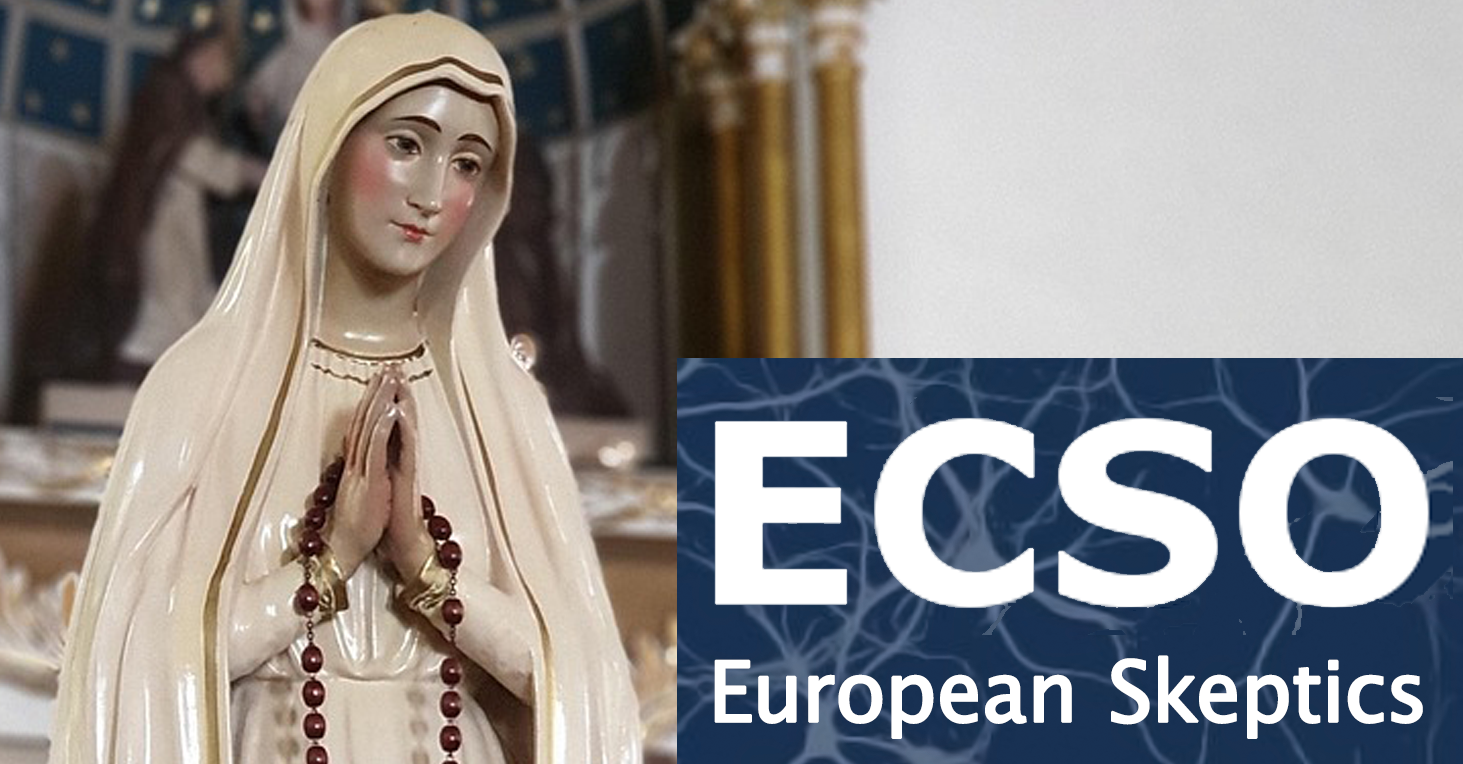 In Italy, Gisella Cardia, known as the “visionary of Trevignano”, is being charged with fraud. Her husband, Gianni Cardia, has been charged with accessory to fraud.
In Italy, Gisella Cardia, known as the “visionary of Trevignano”, is being charged with fraud. Her husband, Gianni Cardia, has been charged with accessory to fraud.
The two are accused to have staged apparitions of the Virgin Mary. Gisella Cardia allegedly predicted future catastrophes and disasters such as earthquakes, to encourage believers to donate money to the veneration of the Madonna of Trevignano.

The statue of the Madonna in question, located on the shores of Lake Bracciano about fifty kilometres from Rome, has been in the news for years as it supposedly cried blood. Cardia claimed to have received messages from both God and Satan.
Hundreds of believers flocked every month to witness the “miracle,” although the Catholic Church distanced itself from the event. The couple offered pilgrims pizza and gnocchi, which were said to have miraculously multiplied!
A judicial investigation earlier this year revealed that the DNA of the blood on the statue matched that of the visionary herself, Gisella Cardia. Her lawyer argued at the time that the accused’s blood could have been mixed with that of the statue and further that no one can know the composition of the DNA of the Virgin Mary.
The court is particularly concerned that Cardia and her husband collected a total of 365,000 euros in donations. The couple has claimed this money would go to a children’s hospital, but it seems it was instead spent on renovating the shrine and purchasing an expensive car. The trial will begin in April 2026 in the town of Civitavecchia.
Last Tour the France showed the revival of the nose strips. Important cyclists like Jonas Vinegaard (who finished second), Jonathan Milan (green jersey), Remco Evenepoel and Wout van Aert were regularly seen with a plaster on their nose. The Dane Mattias Skjelmose even showed off a special design every day.
There is nothing new to this. Nearly thirty years ago some sportsmen also used such strips, including Tour winner Jan Ulrich, but also tennis icon Andre Agassi.
But now there is really a revival. They are used by tennis champion Carlos Alcaraz, skier Sofia Goggia and a lot of footballers. “It’s for my health. I have a slight cold and can breathe better this way,” Alcaraz recently said.
They were originally invented to try to help snorers, but the opinion of medical experts is very clear: “Nasal strips can slightly widen the internal nasal valve, allowing slightly more air to enter, especially in people whose nasal valve is naturally narrower. This can certainly provide some comfort during light exertion, but there’s no evidence that it also makes a difference in athletic performance or maximum oxygen uptake capacity.”
In fact, no one denies that they are at best a placebo and probably just a fashion. The Belgian cyclist and former hour record holder Victor Campenaerts, described as a “long-time nose-strip aficionado”, may be responsible for its renewed popularity, since he frequently and enthusiastically spoke about them in his daily Tour vlogs on Instagram.
Good news – for once – and it comes from Romania, because there something is being done about nonsense on radio and television. The Romanian National Audiovisual Council (CNA) has imposed a new rule for all radio and television programs that “advocate behaviour inspired by astrology, horoscopes, or numerology.” These programs must now be preceded by the warning: “The information in this program has no scientific basis.”
Since the fall of the communist regime – when such prediction practices were banned – astrology has flourished in Romania on broadcasters, especially on commercial television. Everyone knows Neti Sandu, an astrologer who has been giving a daily forecast on the largest commercial television station for over twenty years. This broadcast is followed by millions of Romanians.
The rules are also being tightened for other matters. Radio and television stations have been required for some time to broadcast various announcements between programs. The CNA has recently significantly expanded the number of such recommendations.
From now on, broadcasters will also be required to broadcast messages about vaccination: “Vaccination prevents the development of serious diseases. Vaccination is essential for your child’s health.” But also: “Dietary supplements are not curative and cannot replace treatments prescribed by a doctor.”
The previous news item briefly touched on apricot kernels. Rumours circulate that they help prevent cancer.
Apricot kernels contain amygdalin, also known as laetrile. Cancer cells are said to die after ingestion, while healthy cells are said to remain unharmed. In the 1970s, supplements containing amygdalin were available as a cancer treatment. This has since been clearly demonstrated to be untrue. On the contrary, amygdalin is dangerous. It is converted in the body into highly toxic cyanide.
Eating even two or three apricot kernels can have serious consequences. Even one kernel is poisonous for young children. Simply swallowing a kernel isn’t a problem, but chewing or crushing the kernels is.
The Belgian Ministry of Public Health has been warning about the high toxic content of apricot kernels since 2016. Since then, most packaging has been removed from health food stores and supermarkets. However, you can still buy the kernels online.
Apricot kernel powder is still used in confectionery, such as imitation marzipan, but it is first heated to high temperatures, which eliminates the toxic effect.
A BBC investigation in Britain has caused a stir about a young woman who died of cancer in 2024 after refusing chemotherapy.
She was estimated to have an 80% chance of being cured by chemotherapy, but under pressure from her mother, 23-year-old Paloma Shemirani chose not to undergo it and instead chose to follow the Gerson therapy. This involves drinking the juice of 9 kilograms of fruit daily, taking various supplements, and undergoing colon cleansing with coffee or castor oil.
When Paloma Shemirani was hospitalized, her mother, Kate, began pressuring her to refuse chemotherapy. An alternative practitioner Kate knew recommended the Gerson diet. She died seven months later.
Kate Shemirani has blamed the British National Health Service for her daughter’s death. She is a former nurse who has been spreading dubious ideas on her website for years. As The Natural Nurse, she sells all kinds of quack remedies, such as apricot kernels, for health problems. Subscribers to her website pay £70 a year. Even more expensive is the twelve-week health program she offers.
During the COVID pandemic, she campaigned against vaccinations, which she claimed were part of a conspiracy to kill people. In 2021, she was struck off her nursing license for spreading misinformation about the pandemic. Several social media companies also blocked her profiles for spreading misinformation.
Pamela’s brothers exposed the scandal. According to them, their mother was obsessed with conspiracy theories and forced them on her children. One of the brothers says she once decided to turn off the Wi-Fi because it was considered dangerous, even though he himself clearly stated that he needed the internet for his studies. “That only fed the joy that she had for using her irrational system of beliefs to control(() me.”
Several health institutions warn about the dangers of the Gerson diet. There is no evidence for its effectiveness and it can dangerously weaken a patient.
In a blog by the UK Health Security Agency it is reported that in 2024 there were 2,911 laboratory confirmed measles cases in England, the highest number of cases recorded annually since 2012. Most of these cases were in unvaccinated children under the age of 10. The agency further reports that more than 1 in 10 eligible children under the age of 5 have not had the Measles Mumps and Rubella (MMR) vaccine or are only partially vaccinated, indicating a decline in vaccination rate over the last 15 years. ‘Vaccinations remain the best defence against infection, so it is very important that children attend their routine vaccination appointments and catch up on any they may have missed.’
The current UK Labour government faces significant concerns about the rising percentage of the population diagnosed with disabilities, leading to an increased number of individuals registered as unable to work. This surge places a substantial strain on benefit costs, hampering government efforts to reduce borrowing and stimulate economic growth. In response, the government plans to introduce more stringent criteria for disability diagnosis and to increase support for rehabilitation programs to help more people return to work . Meanwhile, these concerns have been echoed for many years now by some medical professionals worried about over-diagnosis and the growing tendency to medicalise everyday life problems, especially in the field of psychiatry. This discourse is reflected in the publication this year of least three books in the UK, addressing these concerns:
• No More Normal: Mental Health in an Age of Over-Diagnosis by Alistair Santhouse.
• Searching for Normal: A New Approach to Understanding Distress and Neurodiversity. by Sami Timimi.
• The Age of Diagnosis: Sickness, Health and Why Medicine Has Gone Too Far by Suzanne O’Sullivan.
A national patient survey conducted by the Human Fertilisation and Embryology Authority (HFEA) on the experiences of 1,500 fertility-treatment patients in the UK has found that three quarters of patients are being offered unnecessary add-on treatments that ‘are not proven to increase the change of having a baby’. In fact, this has been happening for several years now and in 2016 was the subject of both a Panorama undercover investigation on BBC 1 television and a paper published in the online journal BMJ Open.